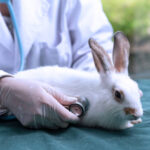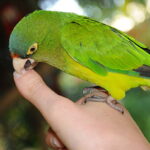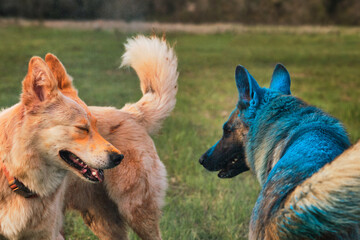Introduction to Dog Grunting When Lying Down
Have you ever noticed your dog making grunting noises when they lie down?
It’s not uncommon for dogs to vocalize in various ways, and grunting while lying dog grunts when lying down is one of them. While it may seem peculiar, there are several reasons why dogs exhibit this behaviour. In this guide, we’ll delve into the possible causes of dog grunting when lying down and what you can do to address it.
Table of Contents

What Causes Dogs to Grunt When Lying Down?
Physical Discomfort
Physical discomfort is one of the most common reasons why dogs grunt when lying down. This discomfort could stem from various sources, including joint pain, muscle stiffness, or digestive issues. Dogs may grunt as they settle into a lying position to alleviate discomfort or find a more comfortable posture.
Communication

Dogs use vocalizations as a form of communication, and grunting can be one way they express themselves. Your dog may grunt when lying down as a means of communicating relaxation or contentment. It could also be a way for them to signal to you or other animals in the household that they are settling in for a nap or rest.
Breed-Specific Behavior
Dog Grunts When Lying Down
Some dog breeds are more prone to grunting than others. Brachycephalic breeds, such as French Bulldogs or Pugs, are known for their snorting and grunting sounds due to their facial structure. These breeds may grunt more frequently when lying down, especially if they have breathing difficulties or nasal congestion.
Age-Related Changes

As dogs age, they may experience joint stiffness or muscle weakness, leading to grunting when lying down. Senior dogs, in particular, may grunt more often as they struggle with arthritis or other age-related ailments. Providing comfortable bedding and supportive surfaces can help alleviate discomfort and reduce grunting.
What You Can Do to Help Your Dog
Schedule a Veterinary Check-Up
If you notice your dog grunting excessively or exhibiting signs of discomfort when lying down, it’s essential to consult with your veterinarian. A thorough physical examination can help identify any underlying medical issues that may be contributing to the grunting behaviour. Your vet may recommend diagnostic tests such as X-rays or blood work to assess your dog’s overall health.
Provide Comfortable Bedding
Invest in a quality dog bed that provides adequate support and cushioning for your dog’s joints and muscles. Choose a bed with memory foam or orthopedic features to help relieve pressure points and promote comfortable rest. Additionally, consider placing blankets or pillows in your dog’s favourite resting spots to enhance comfort and warmth.
Maintain a Healthy Weight

Excess weight can exacerbate joint pain and musculoskeletal issues in dogs, leading to increased grunting when lying down. Ensure your dog maintains a healthy weight through balanced nutrition and regular exercise. Consult with your veterinarian to develop a weight management plan tailored to your dog’s age, breed, and activity level.
Understanding Why Your Dog Grunts When Lying Down
Monitor Breathing and Nasal Health
If you have a brachycephalic breed or a dog prone to respiratory issues, such as snoring or nasal congestion, it’s crucial to monitor their breathing and nasal health. Keep their nasal passages clear and free of obstruction to facilitate easier breathing. Avoid exposing them to smoke or air pollutants that could exacerbate respiratory symptoms.
Conclusion
While dog grunting when lying down may seem unusual, it’s often a harmless behaviour that can be attributed to various factors such as physical discomfort, communication, breed-specific traits, or age-related changes. By understanding the possible causes and taking proactive steps to address them, you can help your dog enjoy a more comfortable and restful sleep. Remember to consult with your veterinarian if you have any concerns about your dog’s grunting behaviour, especially if it’s accompanied by other symptoms such as limping or reluctance to move. With proper care and attention, you can ensure your furry friend remains happy, healthy, and content.





























































